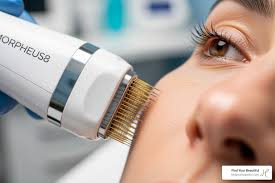Infertility is a medical challenge faced by couples trying to conceive. While it may be complex, understanding what infertility involves and exploring the next steps after a diagnosis can offer clarity and help guide couples toward solutions. Here is more information on the basics of infertility, potential causes for both men and women, how infertility is diagnosed, and what to do following a diagnosis:
Infertility is defined as the inability to conceive after one year of regular, unprotected intercourse for individuals under the age of 35, or after six months for those aged 35 and older. It also includes an inability to carry a pregnancy to term.
This condition can affect both men and women due to various factors, making it a shared challenge for many couples. It is helpful to recognize infertility as a medical condition requiring evaluation. While some couples achieve conception without assistance, others may require medical interventions or expert guidance to address underlying challenges.

Several factors may contribute to infertility in women. Ovulation disorders, such as polycystic ovary syndrome (PCOS) or issues with egg production, are common causes. Conditions affecting the uterus or fallopian tubes, including endometriosis or blocked fallopian tubes, can also hinder conception. Age plays a significant role, as the quality and quantity of a woman’s eggs naturally decline over time, reducing fertility potential.
Infertility in men is often related to issues with sperm. Low sperm count, poor sperm motility, or irregular sperm shape (morphology) may reduce the likelihood of successful conception. Structural abnormalities, such as blockages in the reproductive tract, can also impact fertility. Certain medical conditions, such as diabetes or hormonal imbalances, may also affect fertility in men.
How Do You Know You Are Infertile?
The signs of infertility are not always obvious. Couples may only recognize potential issues when attempts to conceive are not successful over an extended period. For women, irregular or absent menstrual cycles may suggest underlying problems with ovulation. Signs of hormonal imbalances, such as skin changes or unexpected hair growth, can also indicate fertility challenges.
Men may not readily recognize signs of infertility, as there are often no external indicators. A semen analysis conducted by a healthcare professional is a standard diagnostic tool used to evaluate male fertility. This analysis provides detailed information about sperm count, motility, and overall health, helping identify potential obstacles to conception.
What Are the Next Steps After Diagnosis?
After a diagnosis of infertility, consulting a specialist is the logical next step. Specialists are trained to identify specific causes of infertility and recommend personalized treatment plans. Depending on individual circumstances, this may involve hormone therapy, medications to stimulate ovulation, or addressing structural issues through surgical intervention.
There are several treatment options available for infertility. Assisted reproductive technologies (ART) may be used, with in vitro fertilization (IVF) being a potentially helpful method. Other options include intrauterine insemination (IUI) or the use of donor sperm or eggs when necessary. A specialist can guide couples toward the most suitable approach based on their diagnosis and preferences.
Infertility is a complex condition influenced by various medical, lifestyle, and age-related factors. A diagnosis represents the first step toward finding solutions and achieving your goals. Consulting a specialist, understanding potential causes, and exploring individualized treatment options can equip couples with the next steps forward. Contact an expert today to gain tailored insights and support if you want more information.
Understanding QuantumRF Technology In Skin Rejuvenation
Skin rejuvenation can give skin a more youthful appearance, and QuantumRF is a modern advancement…
The Role of Regular Podiatry Check-ups for Overall Wellness
Foot health is a component of general well-being that may go unnoticed until problems arise….
Understanding the Role of a Plastic Surgeon in Cosmetic Procedures
Cosmetic procedures require careful planning, medical expertise, and a clear focus on safety and natural-looking…
The Connection Between Shingles and Your Immune System
Shingles is a viral condition caused by the reactivation of the varicella-zoster virus, the same…
The Impact of Plantar Fasciitis on Daily Activities
Plantar fasciitis is a common condition characterized by inflammation of the thick band of tissue…
The Advantages of Choosing Laser Hair Removal
Laser hair removal is a common cosmetic procedure, and it uses concentrated light to target…
Understanding QuantumRF Technology In Skin Rejuvenation
Skin rejuvenation can give skin a more youthful appearance, and QuantumRF is a modern advancement…
The Role of Regular Podiatry Check-ups for Overall Wellness
Foot health is a component of general well-being that may go unnoticed until problems arise….
Understanding the Role of a Plastic Surgeon in Cosmetic Procedures
Cosmetic procedures require careful planning, medical expertise, and a clear focus on safety and natural-looking…
The Connection Between Shingles and Your Immune System
Shingles is a viral condition caused by the reactivation of the varicella-zoster virus, the same…
The Impact of Plantar Fasciitis on Daily Activities
Plantar fasciitis is a common condition characterized by inflammation of the thick band of tissue…
The Advantages of Choosing Laser Hair Removal
Laser hair removal is a common cosmetic procedure, and it uses concentrated light to target…




